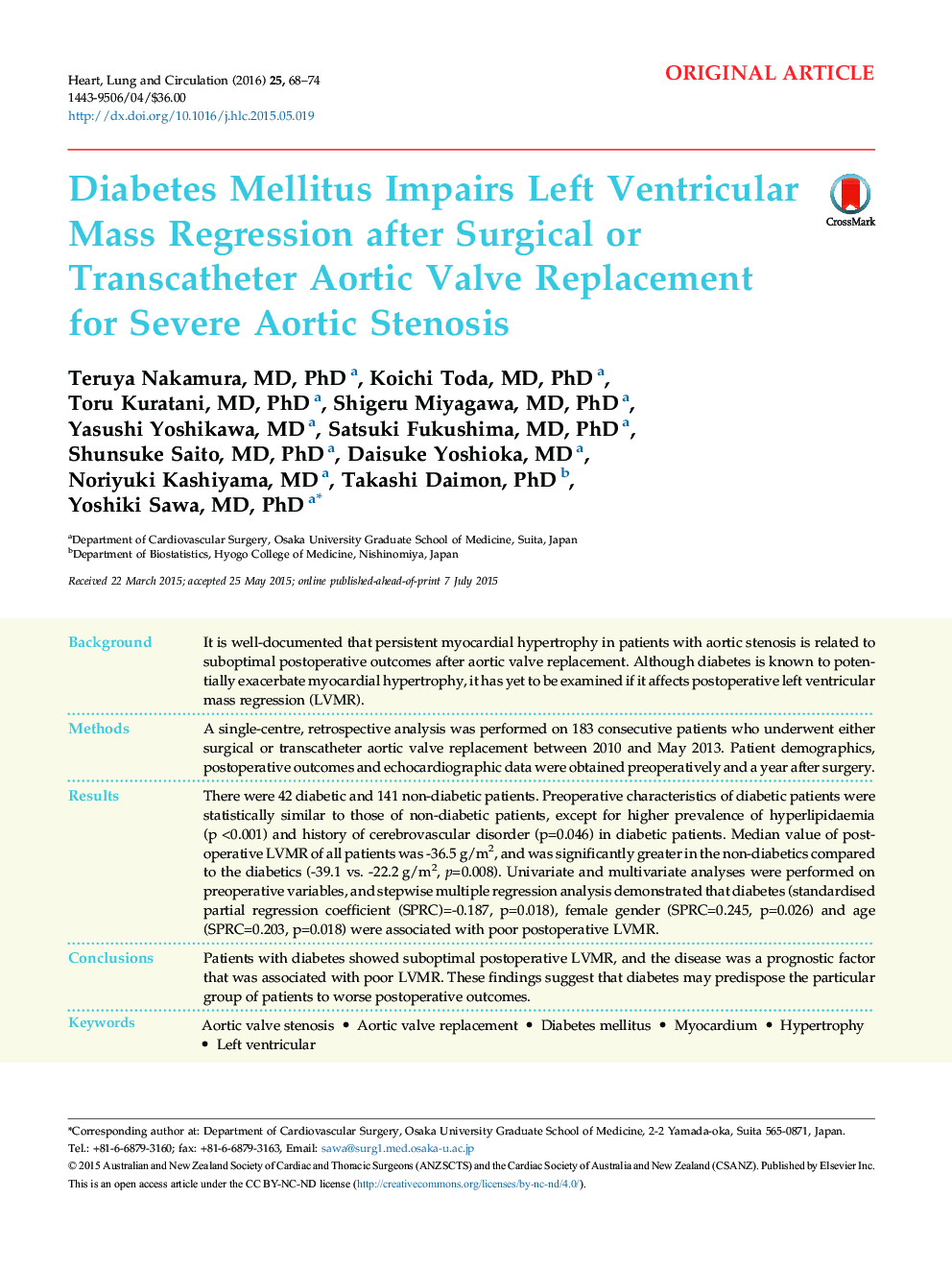| Article ID | Journal | Published Year | Pages | File Type |
|---|---|---|---|---|
| 5958986 | Heart, Lung and Circulation | 2016 | 7 Pages |
BackgroundIt is well-documented that persistent myocardial hypertrophy in patients with aortic stenosis is related to suboptimal postoperative outcomes after aortic valve replacement. Although diabetes is known to potentially exacerbate myocardial hypertrophy, it has yet to be examined if it affects postoperative left ventricular mass regression (LVMR).MethodsA single-centre, retrospective analysis was performed on 183 consecutive patients who underwent either surgical or transcatheter aortic valve replacement between 2010 and May 2013. Patient demographics, postoperative outcomes and echocardiographic data were obtained preoperatively and a year after surgery.ResultsThere were 42 diabetic and 141 non-diabetic patients. Preoperative characteristics of diabetic patients were statistically similar to those of non-diabetic patients, except for higher prevalence of hyperlipidaemia (p <0.001) and history of cerebrovascular disorder (p=0.046) in diabetic patients. Median value of postoperative LVMR of all patients was -36.5Â g/m2, and was significantly greater in the non-diabetics compared to the diabetics (-39.1 vs. -22.2Â g/m2, p=0.008). Univariate and multivariate analyses were performed on preoperative variables, and stepwise multiple regression analysis demonstrated that diabetes (standardised partial regression coefficient (SPRC)=-0.187, p=0.018), female gender (SPRC=0.245, p=0.026) and age (SPRC=0.203, p=0.018) were associated with poor postoperative LVMR.ConclusionsPatients with diabetes showed suboptimal postoperative LVMR, and the disease was a prognostic factor that was associated with poor LVMR. These findings suggest that diabetes may predispose the particular group of patients to worse postoperative outcomes.
